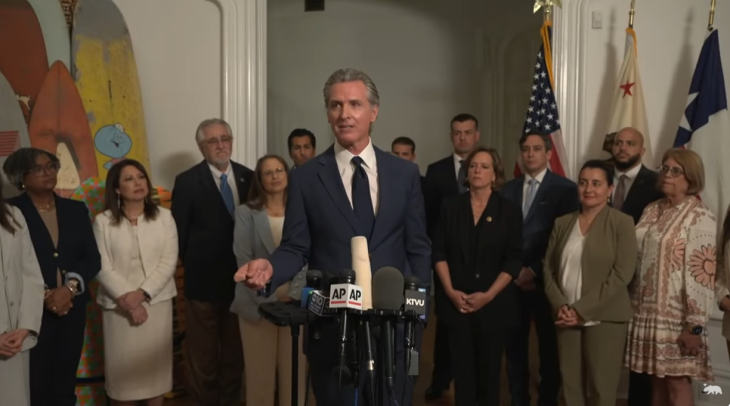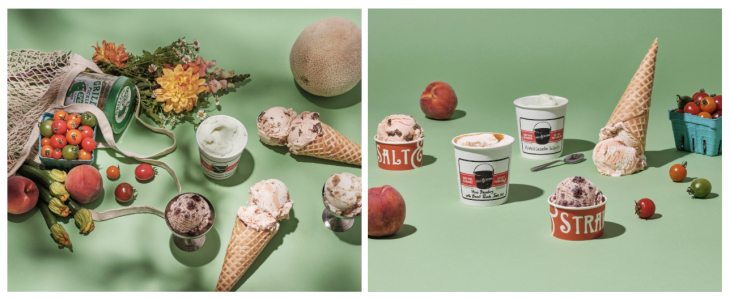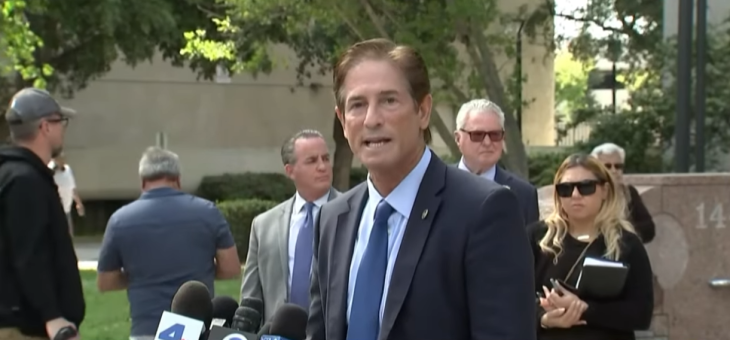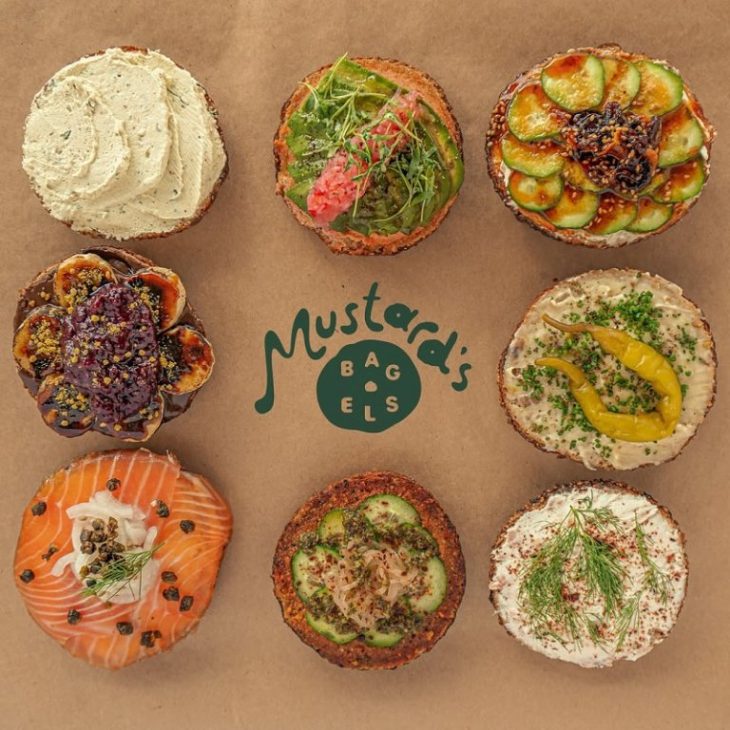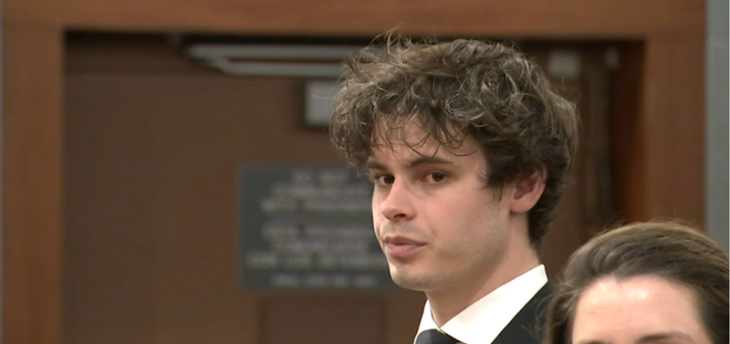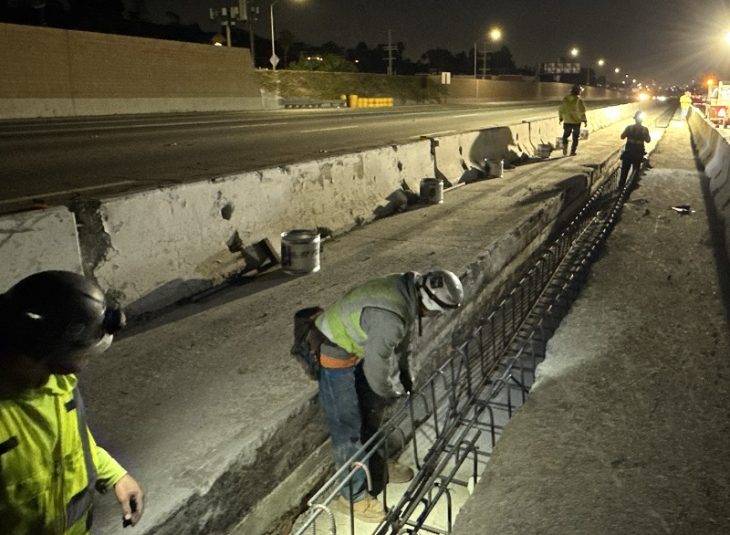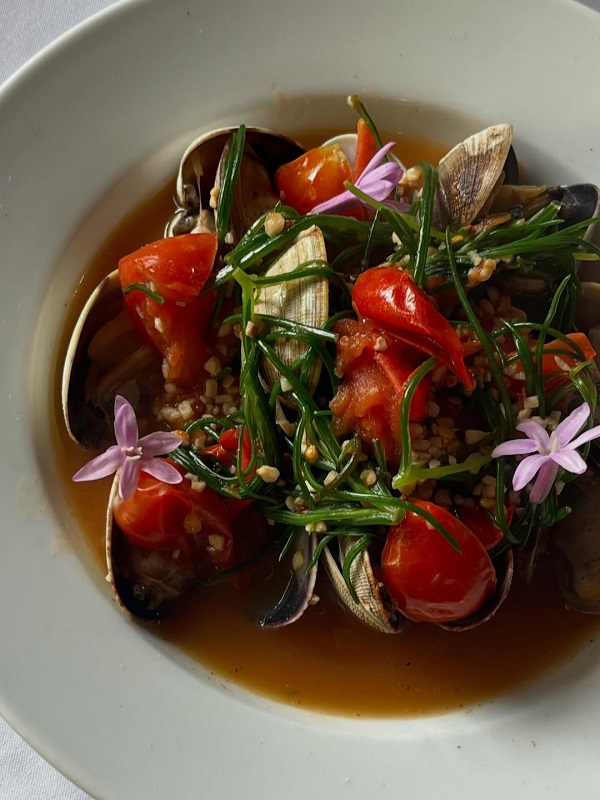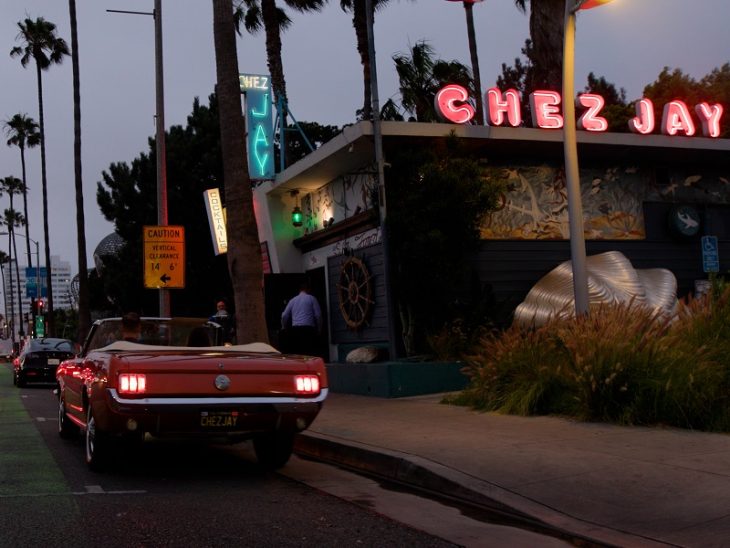Activists gathered at City Hall Monday to call on the city to change its policy that criminalizes street vending.
The rally and news conference held on the south lawn came before Monday’s meeting of the City Council’s Public Works and Gang Committee, which will discuss a proposal drawn up by council members Joe Buscaino and Curren Price that would permit street vending in Los Angeles and remove criminal penalties as an enforcement tool.
“Street vending is criminalized in Los Angeles. Our city has a longstanding and shameful practice or targeting and arresting hard-working Angelenos like me, trapping vulnerable people in the criminal justice system,” said Deborah Hyman, a vendor from Leimert Park and a member of the Los Angeles Street Vendor Campaign, which organized the news conference. “The Los Angeles Street vending campaign has worked hard to wake up City Hall and demand respect by organizing thousands of vendors and allies across the city to legalize street vending.”
The proposal under review Monday would replace criminal penalties with a permit system enforced through fines and property confiscation. The issue has been stalled in the Public Works Committee for more than a year.
“The time is now. I hope that the Public Works Committee acts, and acts now, and decides not to delay this any longer,” said Councilman Jose Huizar, who is not on the committee. “This is something that we have been waiting for for a very long time and at the end of the day, we all benefit.”
The proposal notes that Los Angeles is the only major city in the United States that prohibits street vending of every type. It adds, “While vendors are being charged with misdemeanors for violating this ban, there are no penalties imposed on those that purchase from vendors, nor any regulations or ban on food trucks, even though they are utilizing the same sidewalks to sell their products, only from the other side of the curb.”
The proposal also notes President-elect Donald Trump’s stated goal of deporting undocumented immigrants with criminal records, and says, “Continuing to impose criminal misdemeanor penalties for vending disproportionately affects, and unfairly punishes, undocumented immigrants, and could potentially put them at risk for deportation.”
Victor Narro of the UCLA Labor Center said, “Our recent presidential elections leave us in uncertain and frightening times, particularly for people of color and immigrants in this country. Now more than ever, we must protect immigrants in our community. We cannot leave anyone behind.”
The proposal calls for permitting stationary vending, such as taco stands, in commercial and industrial areas around the city, as long as the walkway is not obstructed, and only two vendors per block would be allowed. Vending in most residential areas would be prohibited, though an exception could be made for smaller, mobile push-cart vendors.
Vendors would be limited to operating from 7 a.m. to 9 p.m. except for special cases like sporting and entertainment events. The proposal would also allow for the creation of special districts where more permissive or restrictive rules could be allowed.
The proposal has received split support from the city’s neighborhood councils, with eight offering community impact statements of support and eight submitting statements opposed to the plan as it currently stands.
The Northridge East Neighborhood Council wrote that it is “concerned about the inadequate enforcement of the current law and about the negative impact on existing `brick and mortar’ businesses, as well as on residential neighborhoods, that legalization would bring.”
The Coalition to Save Small Business, which is made up of more than 1,300 small businesses, called the plan “an improvement over earlier efforts to allow unregulated, citywide street vending” and said it supported “many of its provisions.”


